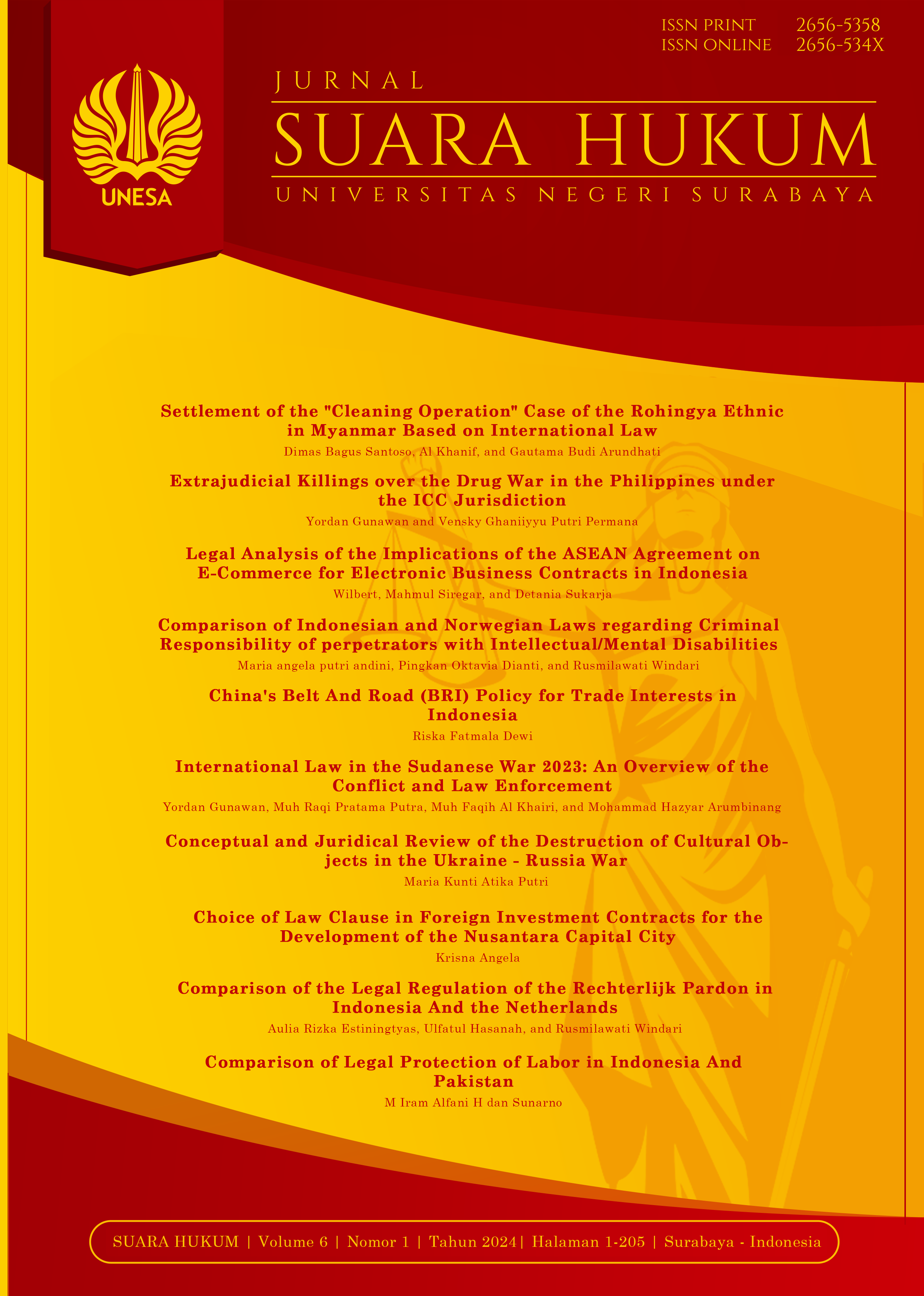Comparison of Indonesian and Norwegian Laws regarding Criminal Responsibility of perpetrators with Intellectual/Mental Disabilities
DOI:
https://doi.org/10.26740/jsh.v6n1.p68-90Abstract
The criminal responsibility of offenders with mental or intellectual disabilities varies significantly across legal systems, influencing policies within the criminal justice framework. In some jurisdictions, provisions exist allowing for the consideration of disabilities as grounds for exoneration or mitigation of punishment. The reform of Indonesia's Criminal Code in 2023, particularly Articles 38 and 39, addresses the issue of criminal responsibility for individuals with mental or intellectual disabilities. However, challenges arise when the concept of diminished criminal liability is tied more to the defendant's mental or intellectual condition rather than their culpability in the criminal act itself. This study aims to examine and compare these legal regulations and policies with those of Norway. Using a juridical-normative method with legislative and comparative approaches, the research seeks to elucidate the differences in how Indonesia and Norway handle the criminal responsibility of offenders with disabilities. By doing so, this paper aims to clarify the regulatory frameworks governing the exoneration and reduction of criminal liability for individuals with disabilities in Indonesia, ensuring that law enforcement practices align with the rights and considerations afforded to such individuals
References
Andriyan, D. N. (2018). Dewan Perwakilan Daerah Republik Indonesia dalam Perspektif Teori Bicameralisme. Volksgeist: Jurnal Ilmu Hukum dan Konstitusi, 79-94.
Arief, B. N. (1996). Kebijakan Legislatif Dalam Penanggulangan Kejahatan Dengan Pidana Penjara. Badan Penerbit, Universitas Diponegoro.
Bima, M. R. (2019). Implementation of State of Emergency Within the Constitutional Law System in Indonesia. Diponegoro Law Review, 4(1), 405.
Kanter, E. Y., & Sianturi, S. R. (2002). Asas-asas hukum pidana di Indonesia dan penerapannya. Storia Grafika.
Keda, O. (2020). Dokter di Kupang Diduga Bocorkan Rekam Medis PDP Covid-19 via Facebook. Liputan6.Com, retrieved from https://www.liputan6.com/regional/read/4206448/dokter-di-kupang-diduga-bocorkan-rekam-medis-pdp-covid-19-via-facebook
Purwoleksono, D. E. (2019). Hukum Pidana Untaian Pemikiran.
Ross, A. (1975) On Guilt, Responsibility and Punishment. London:Steven & Sons.
Saragih, B. (2015). Kebijakan Pengawasan Terhadap Kepolisian Negara Republik Indonesia (Polri) Sebagai Penegak Hukum yang Profesional Dalam Perspektif Sistem Peradilan Pidana. Bandung: UNPAR.
The Norwegian Penal Code.
Veska, D. (2020). Kiat pengasuhan di tengah wabah virus corona (COVID-19). Retrieved from Unicef website: https://www.unicef.org/indonesia/id/coronavirus/kiat-pengasuhan-Covid-19.
WHO. (2020). Pertanyaan dan jawaban terkait Coronavirus. Retrieved from WHO website: https://www.who.int/indonesia/news/novel-coronavirus/qa-for-public.
Wiradipraja, E. S. Metode Penelitian dan Penulisan Karya Ilmiah Hukum. Bandung: Keni Media. 2018.

Downloads
Published
Issue
Section
License
Copyright (c) 2024 Pingkan Okta Via Dianti, Maria Angela Putri Andini, Rusmilawati Windari

This work is licensed under a Creative Commons Attribution-NonCommercial 4.0 International License.
 Abstract views: 342
,
Abstract views: 342
, PDF Downloads: 465
PDF Downloads: 465



